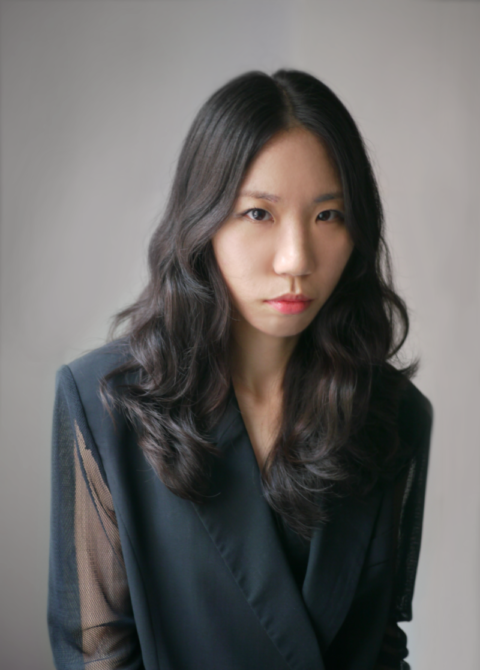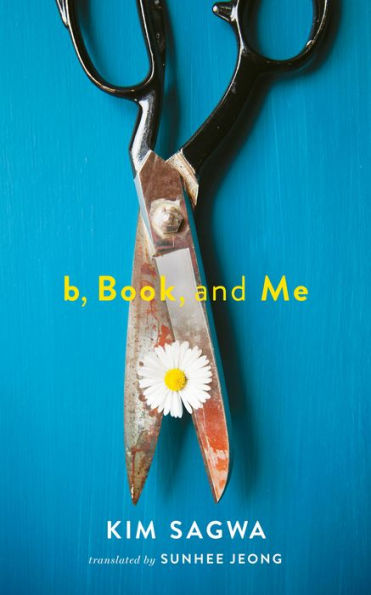Born in 1984 in Seoul, Kim Sagwa grew up in a Republic of Korea shaped and permeated by Americanization. With a trillion-dollar economy, the country is now the United States’ sixth-largest goods trading partner. There are 53,000 Koreans studying in the U.S., the third-largest cohort by country. For most Americans, the startling effect of Bong Joon-ho’s film Parasite is triggered by the familiarity of its situation and values – and the movie’s alarming pivot from comedy to calamity, spelling out the psychic toll of globalization. For Sagwa, “that sort of unbearable, perpetual dehumanizing force of modern life is the pure invention of American capitalism” – and her fiction is dense with its effects on young Koreans.
 “Looking back on my adolescence, I found middle school to be the most dangerous period,” she says. “I have a theory that at age twelve or thirteen, kids don’t really understand why they shouldn’t kill other people.” Her theory led to Mina, published in Korea in 2008 and in an English translation in 2018. The novel portrays three teenagers from affluent families, pressured to succeed in their studies as preparation for work in the global economy, while oppressed by a sense of meaninglessless. Hostility also simmers between the teens. Sagwa’s own turmoil shows up in passages of cultural critique that veer from her plot. Abjection and volatility permeate both her characters’ behavior and the sound and form of her language.
“Looking back on my adolescence, I found middle school to be the most dangerous period,” she says. “I have a theory that at age twelve or thirteen, kids don’t really understand why they shouldn’t kill other people.” Her theory led to Mina, published in Korea in 2008 and in an English translation in 2018. The novel portrays three teenagers from affluent families, pressured to succeed in their studies as preparation for work in the global economy, while oppressed by a sense of meaninglessless. Hostility also simmers between the teens. Sagwa’s own turmoil shows up in passages of cultural critique that veer from her plot. Abjection and volatility permeate both her characters’ behavior and the sound and form of her language.
In 2011, Sagwa’s second novel b, Book, and Me appeared, grappling anew with teen distress. Although once again she creates an environment of antagonism, this time her polemics lurk rather than pounce. First, there is the voice of Rang, a middle-schooler who is bullied and beaten by “the baseball boys” (a gang led by Washington Hat) and apparently disliked by her teachers. She neglects her schoolwork and finds enjoyment only by going to the seashore. Her best friend is b, but they become estranged after Rang makes a passing remark about b’s poverty.
Then b takes over the narrative: “During recess, Washington Hat sat me on his lap. I didn’t do anything. Washington Hat put both of his hands around my waist. I let him. Washington Hat touched my breasts. I didn’t care. Rang was watching, but I pretended not to notice.” Virtually all the action in the novel occurs between these children; adults dwell elsewhere. b says, “My mom definitely told me to die, which means that she hopes that I die soon. My parents have never cared about me. That’s why they don’t give me any money. I’m really, really sick of it. I’m sick of asking Washington Hat to buy me ramyeon. I’m sick of stealing from stores and from people and wearing my Washington hat around all the time. But above all, I’m sick of my sister.” b treats her chronically ill sibling with harsh disregard.
Finally, there is Book – an older boy obsessed with reading. He says:
 “All I do is read. I don’t do anything else. I don’t write reviews. I’m not inspired by them to draw or sing. I don’t get smarter or broader or narrower. I don ‘t become deeper or shallower. I don’t become more of an adult or more like a child. I don’t become more abundant or barren. That’s the true way to read books … Yes, I want to go inside books. That’s my dream. I want to go in and never come out.”
“All I do is read. I don’t do anything else. I don’t write reviews. I’m not inspired by them to draw or sing. I don’t get smarter or broader or narrower. I don ‘t become deeper or shallower. I don’t become more of an adult or more like a child. I don’t become more abundant or barren. That’s the true way to read books … Yes, I want to go inside books. That’s my dream. I want to go in and never come out.”
Rang responds, “I didn’t want to disappear into a book. I wanted to be swallowed up by the ocean. That sounded good enough for me. That’s exactly how desperate I am.”
The attractions of oblivion are pitched against the brutality of abjection, but it’s an unfair fight. Sagwa’s narrative represents a febrile reach toward equilibrium between those poles; by depicting the inner voices of her teens and Book, at least their presences become audible against the daunting background of dominant violence. “The city we lived in was ridiculous, because it was a city that imitated Seoul,” Rang says at the outset of the novel. “But we didn’t know how to do anything that wasn’t absurd.” Rang’s only option is a grim persistence: “I decided to pretend not to care.”
Sagwa won’t permit us to “go in and never come out” of her novel (her blunt diction and severe tone preclude the satisfactions of subtlety) or to come out with a conclusion rigged for comfort. In fact, the relationship of Sagwa to her reader is not so very different from that of b toward her weakened little sister: she wants us to feel not only the immediate hurt but the dread of pummeling to come. This, Sagwa implies, is what we’re all in for unless the word “unless” stops sounding absurdly impossible.
[Published by Two Lines Press on February 11, 2020, 160 pages, $16.95 paperback]
Kim Sagwa’s comments quoted above are taken from her 2018 interview with Janice Lee.